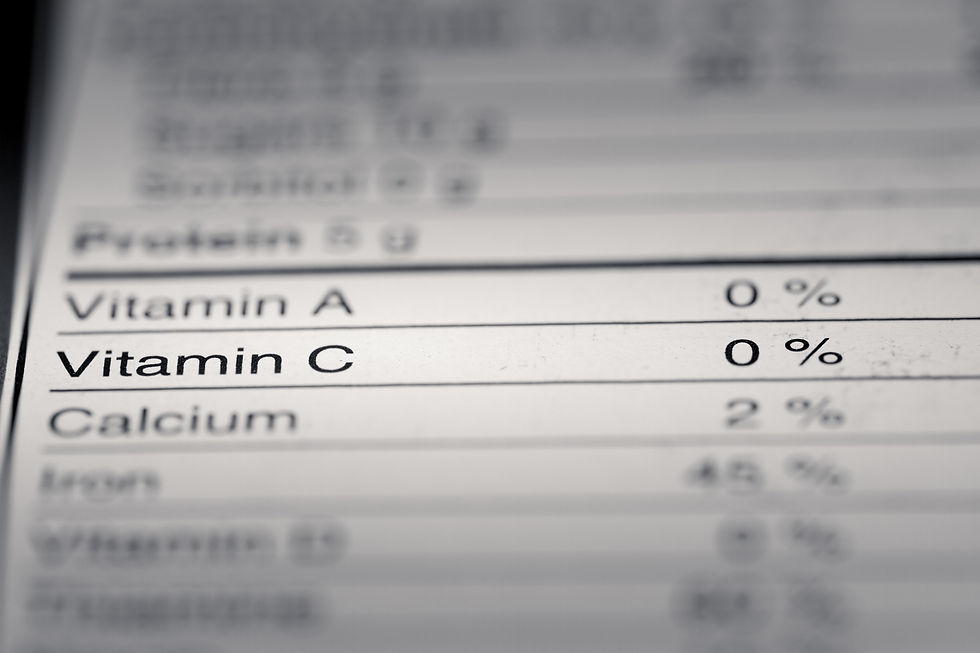Are Chewable Vitamins Bad for You?
- Tammy-Lynn

- Dec 19, 2018
- 3 min read
How could vitamins, in any form, possibly be bad for you?! They're vitamins, right?

Chewable Vitamins remind me of being a kid....
Whether you're getting your daily dose of vitamins in a delicious gummy bear or your vitamin C in a tasty and tart chewable tablet, you could be causing damage to your teeth. Citric acid, the primary ingredient of many chewable Vitamin C tablets, has been found by researchers at the University of Baltimore Dental School to cause dental erosion. Some supplement companies now produce products with calcium ascorbate in the form of vitamin C instead of ascorbic acid.
Gummy vitamins and chewable vitamin C have become very popular in the last several years and we are seeing a number of brands produce gummies for adults as an option for getting essential vitamins and nutrients through a tasty treat. This has always been an acceptable way of getting children to take their vitamins, but did you know that chewable vitamins can harm your teeth? These delicious little treats really are just candies enhanced with vitamins. Almost all of the ingredients found in traditional candy, like glucose syrup (sugar), corn syrup, and carnauba wax are found in their healthy counterparts. Even sugar-free gummies usually contain sticky gelatin and enamel-eating Ascorbic Acid or Citric Acid.
You may feel that compared to eating several candies, you or your child will only consume one gummy or chewable vitamin, so how could just one possibly be bad for you. This is very true, but it's important to remember that these 'healthy' candies are also sticky. This matters, because unlike juice or soda, particles of the gummy are prone to get stuck in your teeth, and they can't be easily rinsed away by the saliva in your mouth. If you take a gummy before bed, but after brushing your teeth, that sticky residue has all night to do its damage. Simply make sure that teeth are brushed shortly after taking them so that these “wanna be candies” don’t sit on your teeth for long periods of time.
The same holds true for chewable Vitamin C, because of the citric or ascorbic acid in the tablet. These acids, the primary ingredient of many chewable Vitamin C tablets, has been found by researchers at the University of Baltimore Dental School to cause dental erosion. Some supplement companies now produce products with a calcium ascorbate form of vitamin C instead of ascorbic or citric acid.
If you do choose to have vitamin C tablets, be sure to rinse your mouth with water afterwards but do NOT brush your teeth within 30 minutes of consuming the tablet (or any other acidic food or drink for that matter). Waiting for 30 minutes will allow any enamel that has softened from acid during eating to re-harden and not get brushed away.
Note: Ascorbic acid is found in citrus fruits as well as citric acid, but citric acid does not contain Vitamin C. Ascorbic acid is natural, citric acid is man-made, hence, synthetic.
#chewablevitamins #gummyvitamins #vitaminc #citricacid #ascorbicacid #dentalcare #dentalerosion #vitaminsandsugar #dental #dentist #teeth #dentistry #smile #dentista #veneers #tooth #teethwhitening #odontologia #odonto #dentalhygiene #dentalcare #dentalstudent #doctor #dentalhygienist #dentalassistant #beauty #oralhealth #dent #health #dentalclinic #odontolove #braces #dentalschool #clinic #healthyteeth #pearlywhites #implants #bhfyp #ortodontia #whiteteeth #implant #toothbrush #cosmeticdentistry #activatedcharcoal #oralcare #odontologiaestetica #odontologo #invisalign #dentallife #orthodontics #teethwhiteningkit #happy #dentures #odontoporamor #dubai #canada #dentaltechnician #whitening #surgery #ortodoncia #follow #instagram #odontopediatria #oral #allnatural #dente #dentistas #marketing



Comments